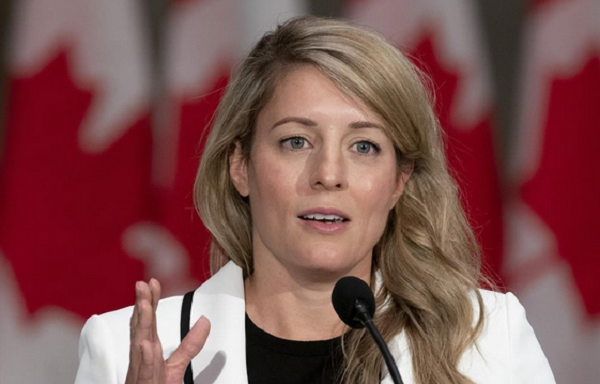Prospective homebuyers still staying on the sidelines in Canada
New data from the Canadian Real Estate Association (CREA) says the number of homes sold in May fell 5.9 per cent compared with a year ago.
Typically, the spring and summer months see a boom in the Canadian real estate market. However, an economist expects higher interest rates will “keep a lid on” sales volumes, putting “pressure on housing prices” and bottling market growth.
“There was some concern that if interest rates fell, we would just see house prices explode again,” David Macdonald, a senior economist at the Canadian Centre for Policy Alternatives, told CTV News Channel on Monday. “But it’s not clear to me that the prices are going to go way up.”
How long will buyers sit on the sidelines?
In Macdonald’s mind, one of the big issues that’s throttled growth in the real estate market is that the impacts of higher interest rates are still trickling down through the system—even though the Bank of Canada recently cut its key lending rate.
“Many Canadians have yet to even renew at these higher rates,” Macdonald told CTV News Channel anchor Marcia MacMillan. “June is that midway point.”
He warns that even if households are renewing at a rate that’s “slightly cheaper” after the latest rate cut, they’re “almost certainly” renewing at a much higher rate than they started at.
“This appears to continue to keep a lid on volumes, keeping them very low.”
How are supply challenges impacting the market?
Canada Mortgage and Housing Corp. says the annual pace of housing starts in May climbed 10 per cent compared with April.
But Macdonald says that higher interest rates have caused challenges for more than just home owners; “It has a big impact on new construction of residential houses in general.”
He says this is one of the key impacts that higher rates have had on the economy, warning that “we’ve seen a decline, particularly in single-family home residential investment.”
“If we take a look at the apartment construction side, that’s relatively similar to where it was when the rate hike started,” Macdonald says. “In large part, that’s because governments are backstopping new apartment builds.”
Although tax preferences and subsidized government loan programs may have kept new apartment investment from falling, according to Macdonald, he does note that although it’s “not down, it’s not up.”
“But at least it’s not down in the same way that we’ve seen on single-family homes.”
What about interest rates?
Amid widespread speculation that Bank of Canada decision makers will make at least one more rate cut in 2024, how long could buyers remain on the sidelines in the housing market?
According to Macdonald, “we might see (sales) volumes increase” but he warns against the expectations that prices will skyrocket like during the COVID-19 pandemic.
“Volumes are way down compared to where they were pre-pandemic.”
He did reiterate the fact that even if interest rates “came down by a fair amount,” it’s unlikely to cause a surge in prices, because “it’s still a lot more expensive” than it was in years past for potential buyers to carry a mortgage
“This big increase that folks are concerned about in terms of house prices just doesn’t seem as likely as it might have been.”
This article was first reported by CTV News












